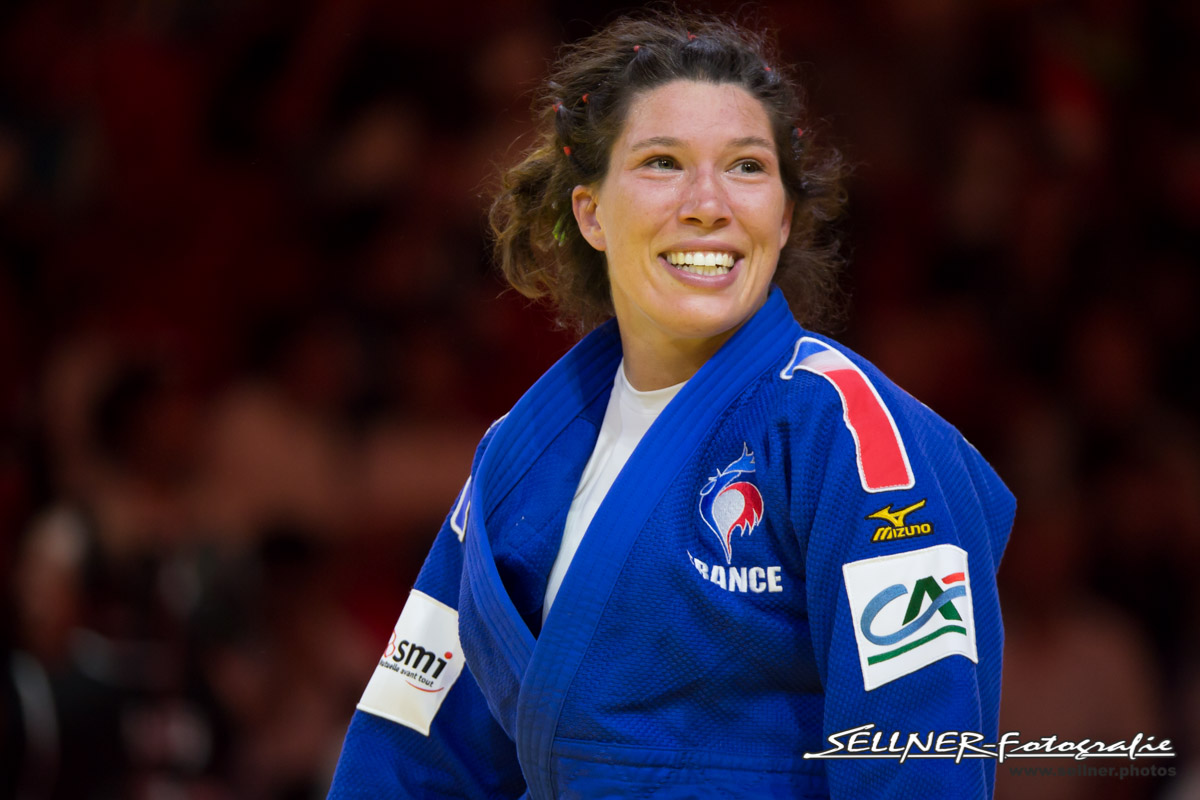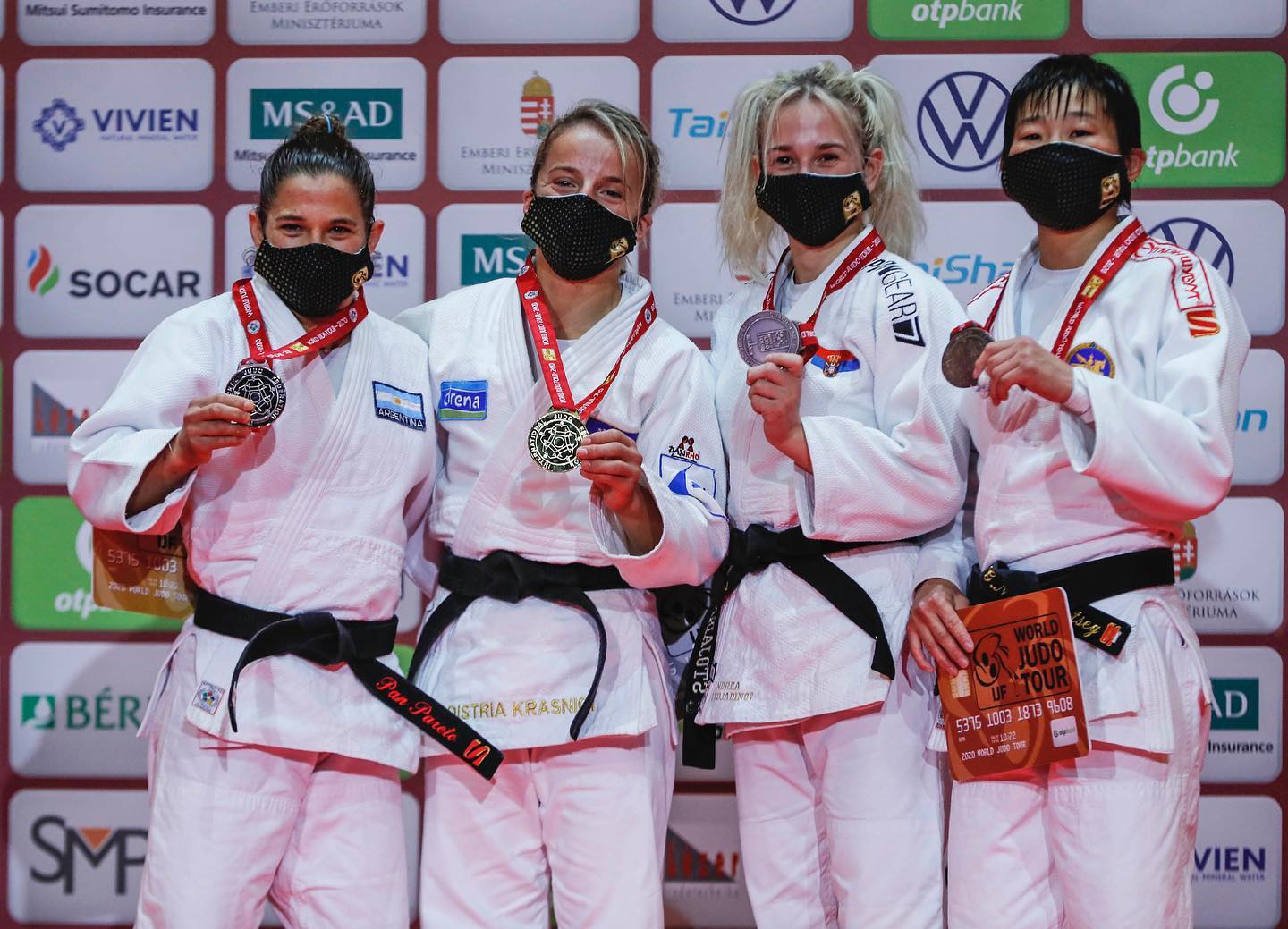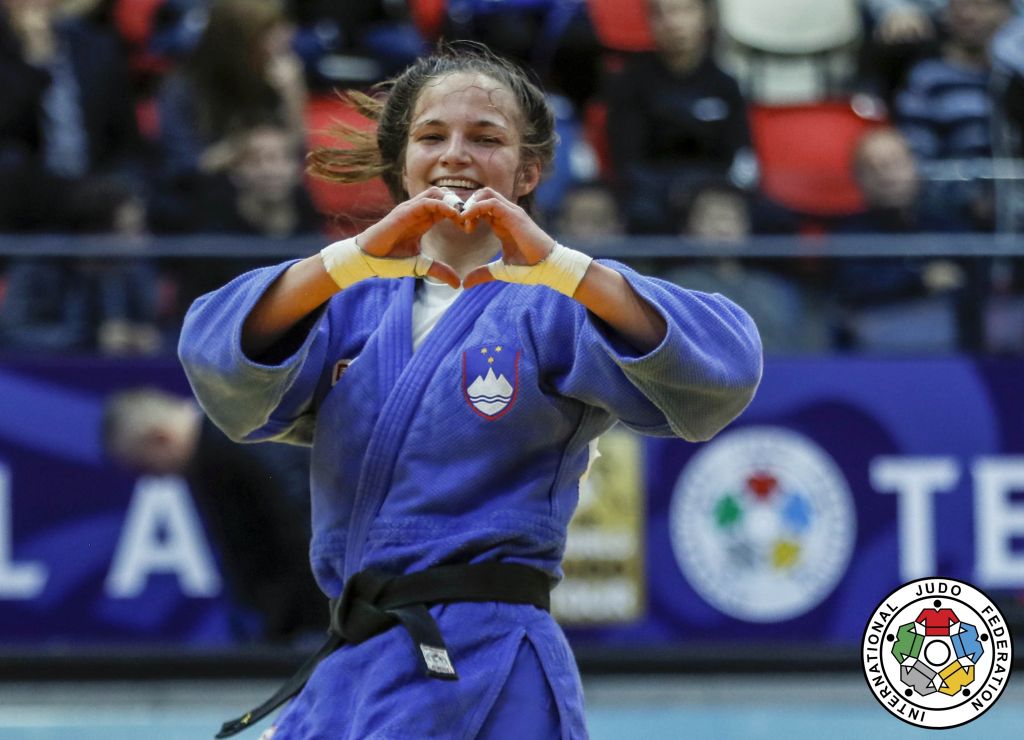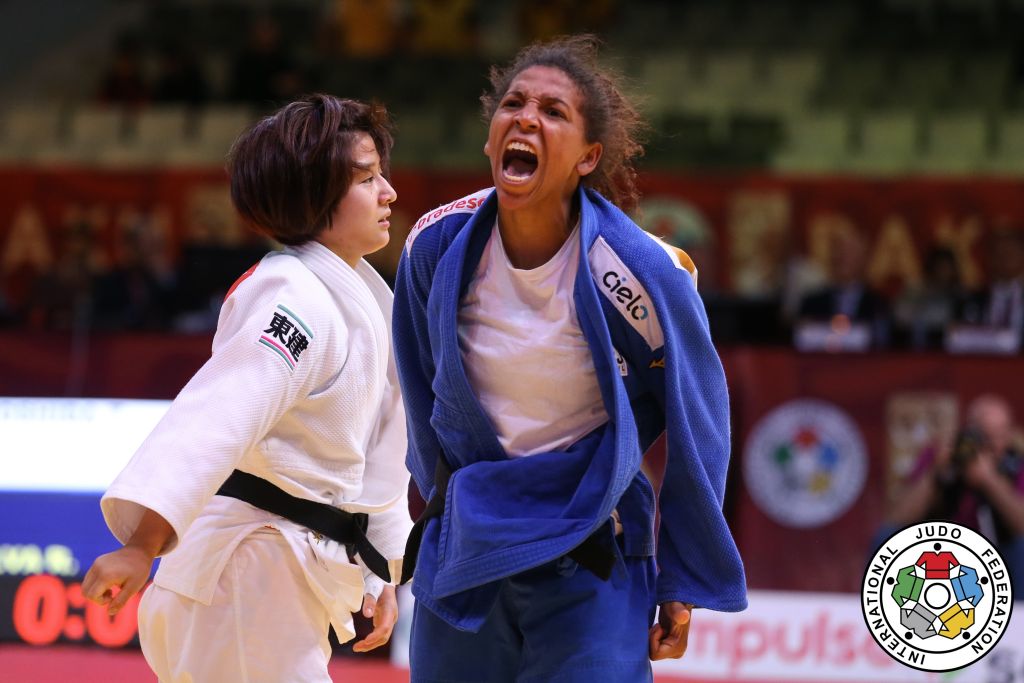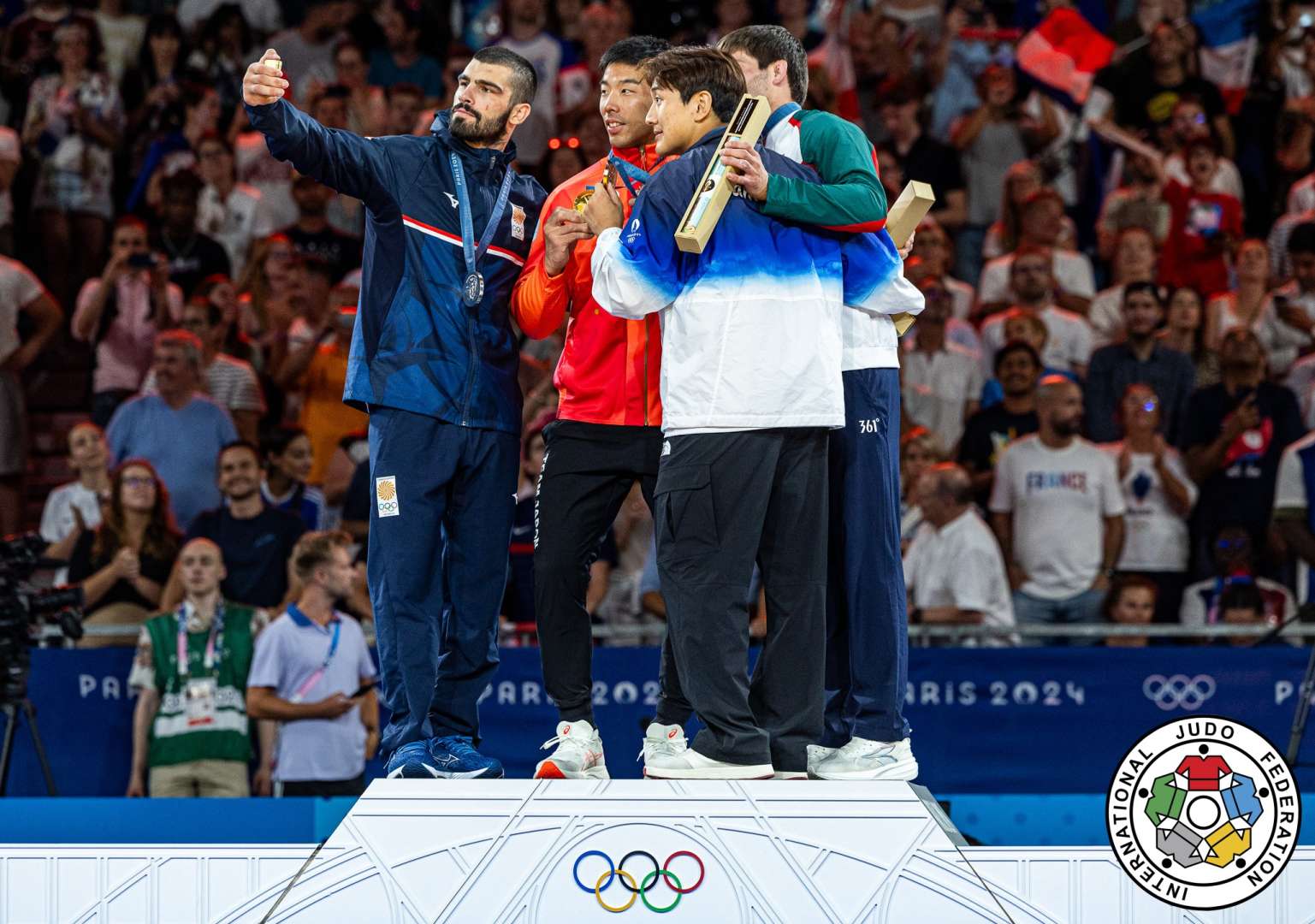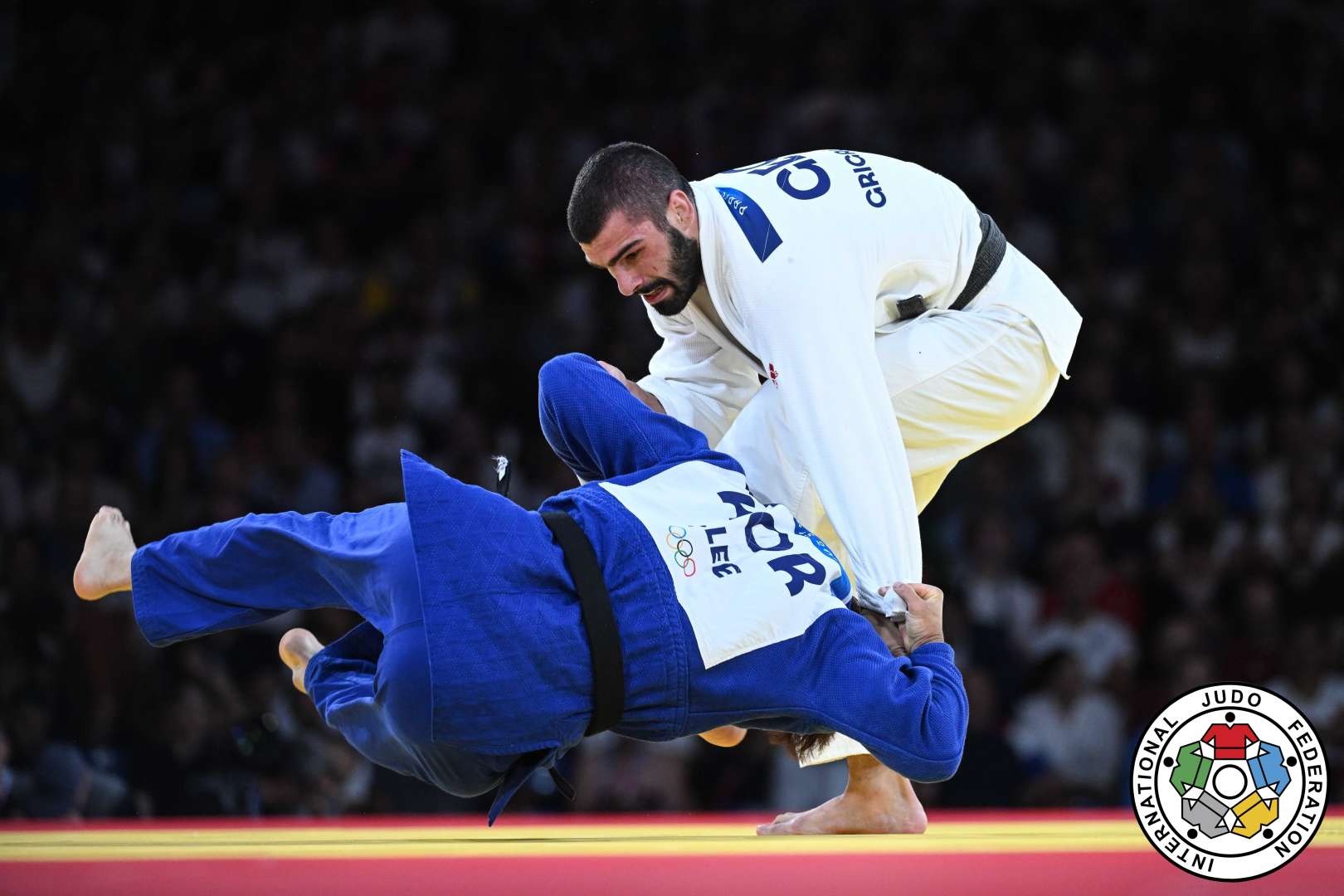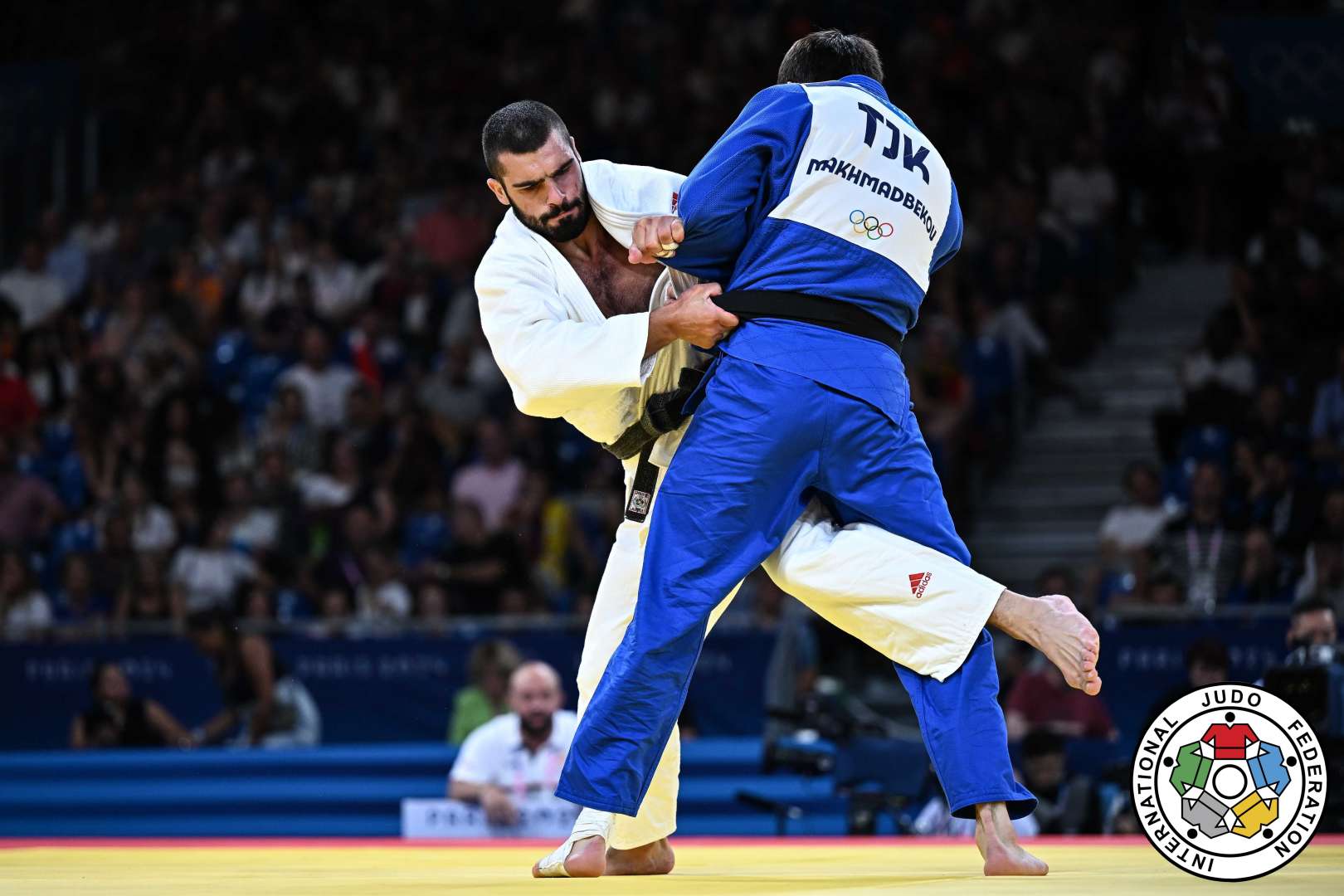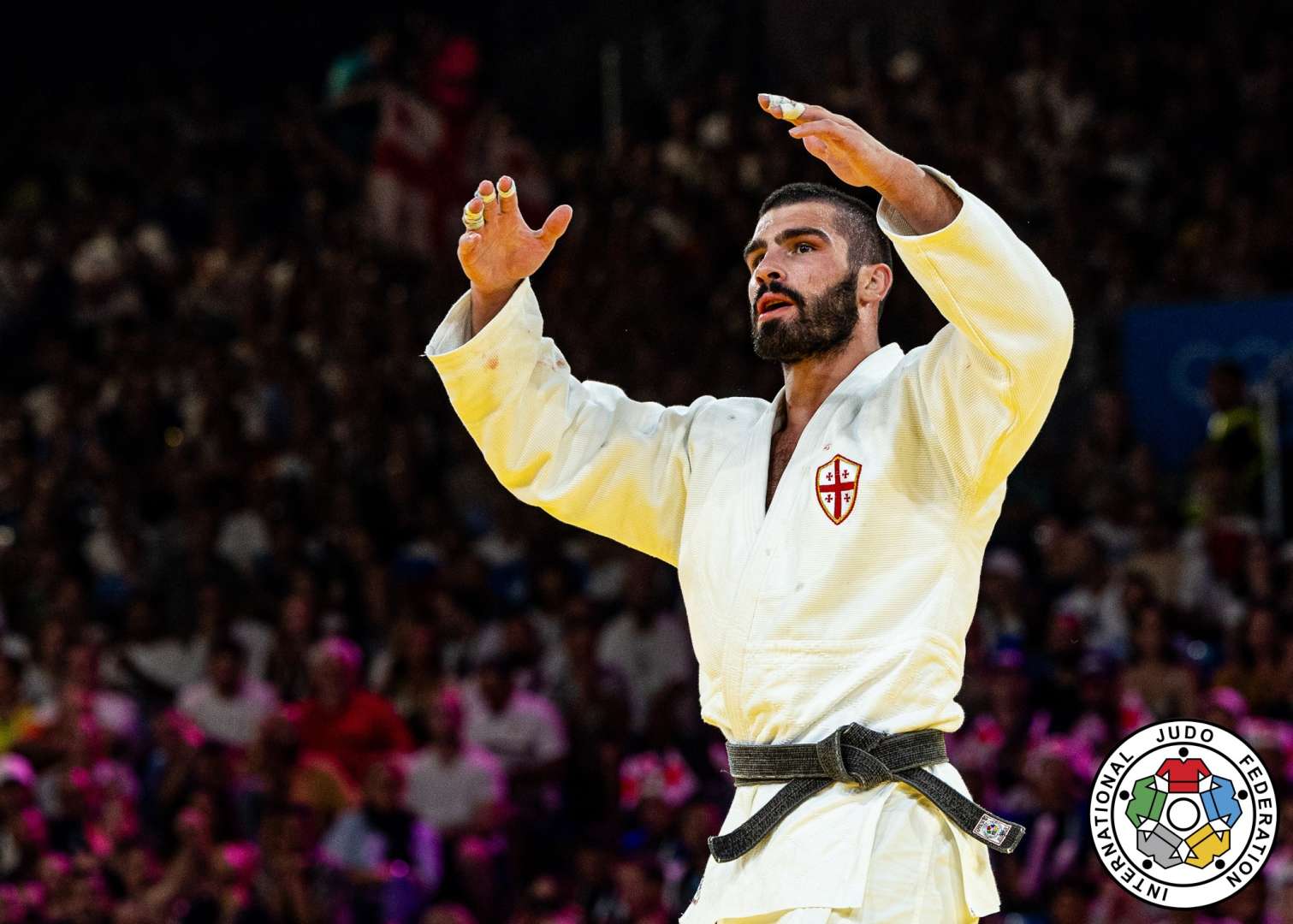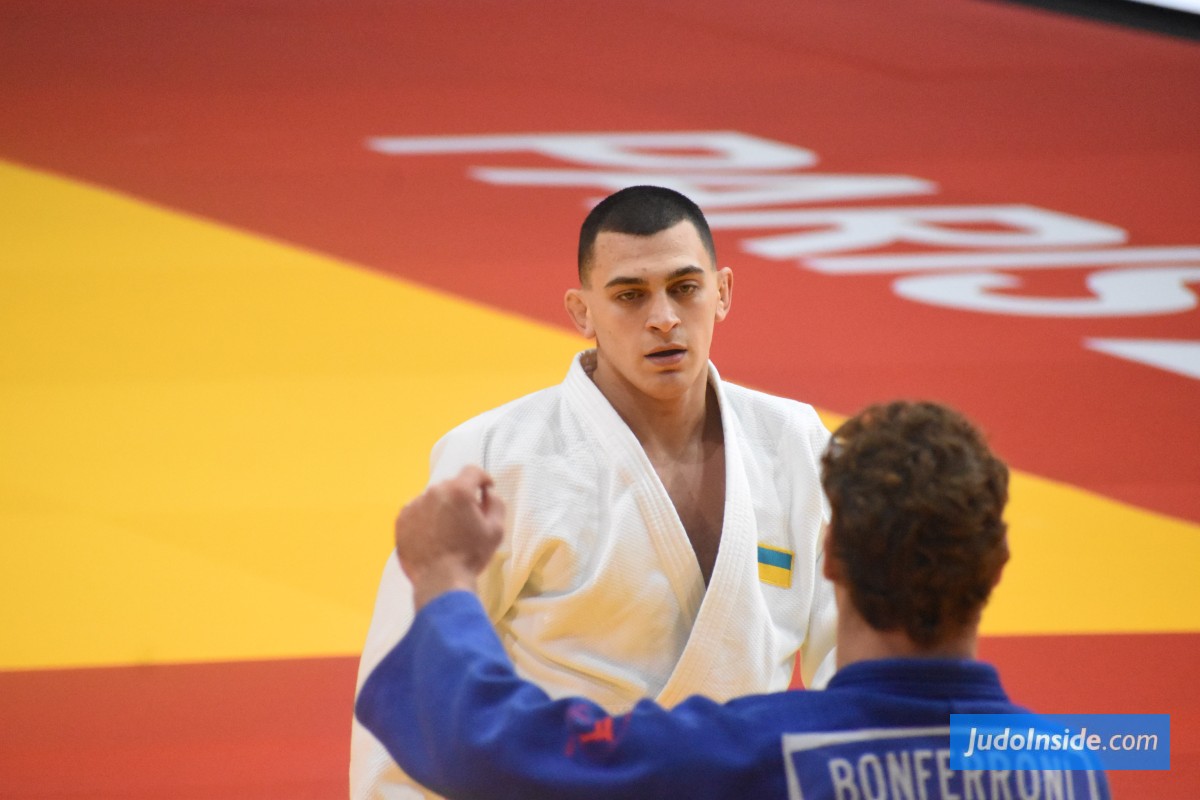Helene Receveaux shows she still counts
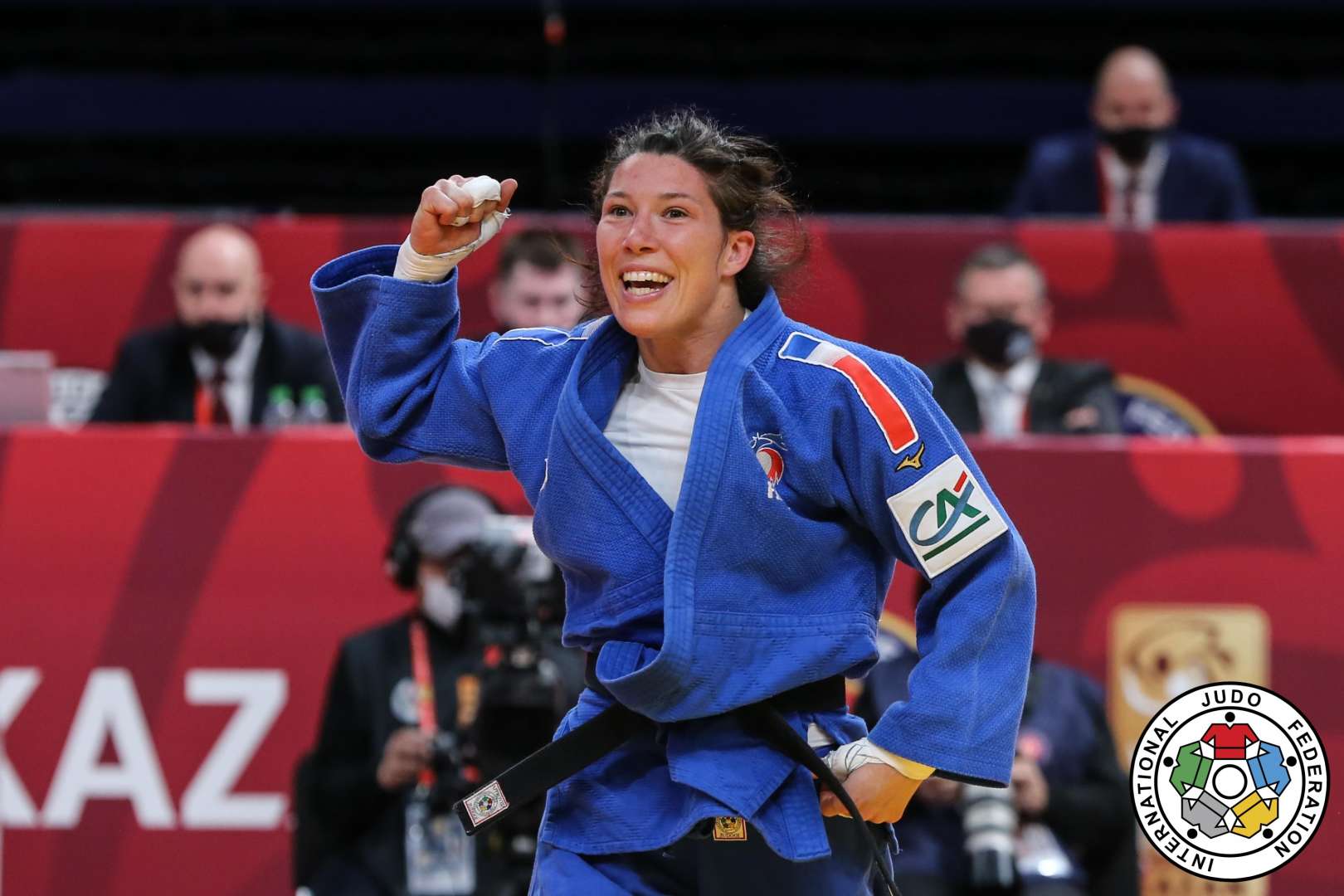
 5 May 2021 21:35
5 May 2021 21:35
 IJF Media team by Nicolas Messner and JudoInside
IJF Media team by Nicolas Messner and JudoInside
 IJF Emanuele Di Feliciantonio / International Judo Federation
IJF Emanuele Di Feliciantonio / International Judo Federation
Although they already know that they will not compete in Tokyo this summer, the French women competing in Kazan continue to reap significant results. The Grand Slam saw a strong Hélène Receveaux who showed that she is still relevant at world level.
Obviously, competing at home had a beneficial effect on Daria Mezhetskaia (RUS), seeded number three in the competition and currently in 17th place in the world rankings, since she qualified for the final, where she found the Frenchwoman Hélène Recevaux. The latter visibly digested her non-selection for the Olympic Games, the French Federation having preferred Sarah-Léonie Cysique to her. Her entry into the Kazan Grand Slam final is a great illustration of the resilience of which top athletes are capable.
After a well balanced first half of the final, Receveaux took the lead with an o-uchi-gari for waza-ari that was for a moment attributed to Mezhetskaia, but logically corrected with the help of the video-refereeing. From there on, the French fighter seemed to be in total control of the match, dominating in standing position as well as on the ground and gaining some precious seconds to conclude the day with a beautiful gold medal around her neck.
Eliminated by Recevaux in the semi-final, Theresa Stoll (GER) found herself facing Kim Jisu (KOR) for the first bronze medal, in order to regain her level of the last Tashkent Grand Slam. The German secured the bronze medal with a waza-ari scored in the first half of the match from a right-handed uchi-mata, that she held until the end.
Analysis Mezhetskaia spinning uchimata:
Russia's Mezhetskaia put on an display of judo especially with her dynamic spinning uchimata which she did not once but twice (both times for ippon).
This is one of two technique she specializes (the other being sode-tsruikomi-goshi).
The spinning uchimata is certainly not her invention though. It's a well-established and popular version of uchimata that's been used by many players before her.
In France, Daniel Fernandes used this a lot. So did Ugo Legrand, who learned it from Fernandes. But way before these two did it, Neil Adams, in his youth, used the spinning uchimata, although later on in his career he switched to a "catch-up" uchimata.
Today though, Mezhetskaia is the player most closely identified with spinning uchimata. It's her tokui-waza.
Russia was very fit in this category and placed a second competitor in the final block, with Yulia Kazarina (RUS), who was opposed by Serbian Marica Perisic, third in Tashkent a few weeks ago. Perisic quickly took the lead with a seoi-nage for waza-ari, that she doubled a little later with a second perfectly executed ippon-seoi-nage and bronze for Serbian Perisic.
 like
like
 share
share
.jpg)



